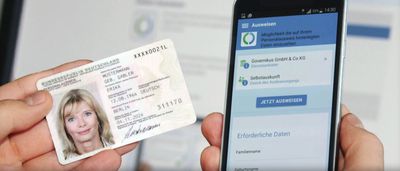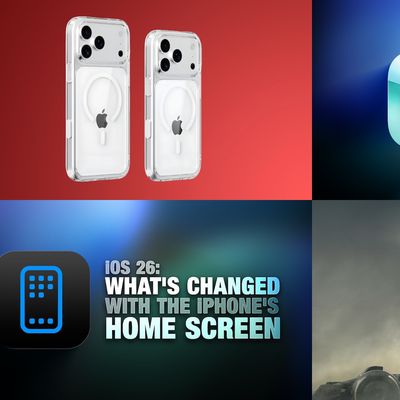Germany Says iPhones Running iOS 13 Will Be Able to Read NFC Tags in National ID Cards and Passports
When iOS 13 arrives, iPhones will be able to read a wider range of Near Field Communication (NFC) tags, including the NFC tags often used in official documentation. Last week, The Verge reported that Japan had confirmed its national identity cards would support iPhone through a government-developed app, and now we're hearing that German authorities are also gearing up to make several forms of ID compatible with iPhone NFC interfaces.

Image via iphone-ticker.de
First spotted by tech blog
iphone-ticker.de, Germany's interior ministry has
announced that iOS 13 will soon allow Apple users to load national ID cards, residence permits, and biometric passports onto their iPhones. At the same time, the federal government's AusweisApp2 will be updated for iOS 13 to support the digital ID function.
In current and earlier versions of iOS, Apple has restricted the NFC reader in iPhones to Apple Pay. iOS 13 removes that technical limitation so that iPhones can scan more NFC chips, but developers must gain approval from Apple before their apps can implement the feature.
In another example of Apple opening up NFC access, the U.K. government recently confirmed that it had reached a deal with Apple to make its Brexit app for EU citizens' residency rights work on iPhones via the NFC chip. According to the German ministry, it and many other states have been in contact with Apple for a long time to negotiate NFC access, so users can expect other countries to announce official documentation support in the run-up to iOS 13's release in the fall.
(Thanks, Chris!)
Popular Stories
A new Apple TV is expected to be released later this year, and a handful of new features and changes have been rumored for the device.
Below, we recap what to expect from the next Apple TV, according to rumors.
Rumors
Faster Wi-Fi Support
The next Apple TV will be equipped with Apple's own combined Wi-Fi and Bluetooth chip, according to Bloomberg's Mark Gurman. He said the chip supports ...
Apple will launch its new iPhone 17 series in two months, and the iPhone 17 Pro models are expected to get a new design for the rear casing and the camera area. But more significant changes to the lineup are not expected until next year, when the iPhone 18 models arrive.
If you're thinking of trading in your iPhone for this year's latest, consider the following features rumored to be coming...
Apple's next-generation iPhone 17 Pro and iPhone 17 Pro Max are only two months away, and there are plenty of rumors about the devices.
Below, we recap key changes rumored for the iPhone 17 Pro models.
Latest Rumors
These rumors surfaced in June and July:A redesigned Dynamic Island: It has been rumored that all iPhone 17 models will have a redesigned Dynamic Island interface — it might ...
The long wait for an Apple Watch Ultra 3 is nearly over, and a handful of new features and changes have been rumored for the device.
Below, we recap what to expect from the Apple Watch Ultra 3:Satellite connectivity for sending and receiving text messages when Wi-Fi and cellular coverage is unavailable
5G support, up from LTE on the Apple Watch Ultra 2
Likely a wide-angle OLED display that ...
iPhone 17 Pro and iPhone 17 Pro Max models with displays made by BOE will be sold exclusively in China, according to a new report.
Last week, it emerged that Chinese display manufacturer BOE was aggressively ramping up its OLED production capacity for future iPhone models as part of a plan to recapture a major role in Apple's supply chain.
Now, tech news aggregator Jukan Choi reports...
The iOS 26 public beta release is quickly approaching, while developers have recently gotten their hands on a third round of betas that has seen Apple continue to tweak features, design, and functionality.
We're also continuing to hear rumors about the iPhone 17 lineup that is now just about right around the corner, while Apple's latest big-budget film appears to be taking off, so read on...



















